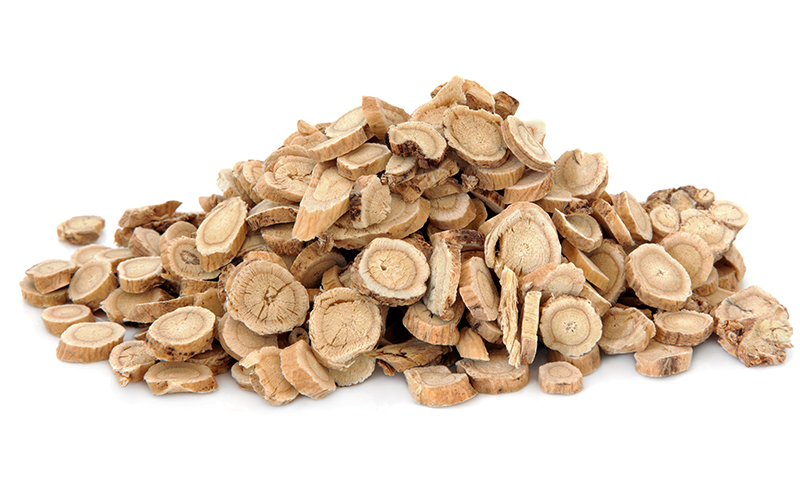What are the Benefits of Astragalus?
Astragalus is reputed for various health benefits, supported by both traditional usage and modern research. Here are some of the primary benefits:
Immune System Support:
Astragalus is known for its immunomodulatory properties. It may help enhance the immune system by stimulating the production of white blood cells, which are crucial for fighting infections.
Anti-Inflammatory Properties:
The herb contains saponins, flavonoids, and polysaccharides, which have anti-inflammatory effects. These compounds can help reduce inflammation, a common underlying factor in many chronic diseases.
Antioxidant Effects:
Astragalus has antioxidant properties that help combat oxidative stress and free radicals, which can damage cells and lead to aging and diseases like cancer.
Cardiovascular Health:
Some studies suggest that astragalus may help improve heart function and reduce symptoms of chronic heart failure. It may also lower blood pressure and decrease cholesterol and triglyceride levels.
Anti-Cancer Potential:
Preliminary studies indicate that astragalus may have anti-tumor effects and could enhance the efficacy of specific chemotherapy treatments. Its immune-boosting properties might also help the body fight cancer cells more effectively.
Diabetes Management:
Astragalus may help manage blood sugar levels and reduce insulin resistance, making it a potentially helpful supplement for people with diabetes.
What is Astragalus
Astragalus is a genus of herbs and small shrubs, and the most well-known species within this genus is Astragalus membranaceus. This herb has been used in traditional Chinese medicine (TCM) for centuries. Often referred to as Huang Qi in Chinese medicine, astragalus is valued for its potential health benefits. It is traditionally believed to support the immune system, boost energy levels, and promote longevity. The astragalus plant’s roots are primarily used for medicinal purposes, typically as teas, extracts, or supplements.
Historical Uses of Astragalus
Astragalus has a rich history in traditional medicine, particularly in TCM. Historically, it was used to treat a variety of ailments, including:
What Forms Does Astragalus Come In?
Who Should Not Take Astragalus?
While astragalus is generally considered safe for many people, certain groups should exercise caution or avoid it altogether.
1. Pregnant and Breastfeeding Women: There is insufficient evidence on the safety of astragalus for pregnant and breastfeeding women, so it is best to avoid it during these periods unless advised by a healthcare provider.
2. Autoimmune Diseases: Because astragalus stimulates the immune system, it may exacerbate symptoms in individuals with autoimmune diseases such as lupus, multiple sclerosis, and rheumatoid arthritis.
3. Transplant Patients: People who have had organ transplants and are taking immunosuppressive drugs should avoid astragalus, as it may interfere with the effectiveness of these medications.
4. People on Certain Medications: Astragalus can interact with certain medications, including those for blood pressure, anticoagulants, and diabetes. If you are on any medication, it’s important to consult with a healthcare provider before starting Astragalus.
Astragalus for Vitality
Astragalus is a useful and historically significant herb used in traditional Chinese medicine to promote health and vitality. Modern research supports many traditional uses, highlighting its potential to support the immune system, reduce inflammation, provide antioxidant benefits, and improve cardiovascular health. However, it is important for certain individuals, such as those with autoimmune conditions or those taking specific medications, to approach astragalus with caution. As with any supplement, it is always advisable to consult with a healthcare professional before adding astragalus to your health regimen.


Use Coupon Code: FREE
*Sorry, coupons can't be combined.